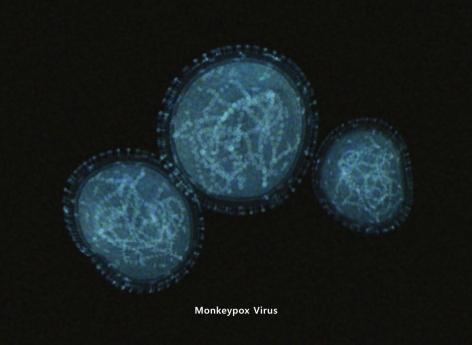THE ESSENTIAL
- The incubation period for monkeypox is usually between six and sixteen days.
- Several studies have shown that prior vaccination against smallpox is approximately 85% effective.
–
“We don’t know if we are only seeing the tip of the iceberg”. These remarks were made on Friday May 27 by Sylvie Briand, the director of the department of global preparation for infectious risks of the World Health Organization (WHO), during the World Health Assembly.
An unusual spread for a virus usually present in Africa
During this meeting, WHO Member States took stock of the epidemic situation concerning monkeypox. Currently, 219 cases have been identified in countries where the virus does not usually circulate. They thus judged the spread of the virus and the situation “unusual”.
“We have a window of opportunity to stop the transmission now. If we put the right measures in place now, we can probably contain this quickly,” said Sylvie Briand. Usually, monkeypox is more common in West and Central Africa but currently it is present in several European countries but also in the United States and Canada.
Monkeypox or monkeypox, other names given to monkeypox, is a virus that is transmitted to humans from wild animals, rodents, primates and other humans. “We are currently at the very, very beginning of this event. We know that we will have more cases in the days to come,” developed Sylvie Briand. “It’s not a disease the general public should be worried about. It’s not Covid-19 or other rapidly spreading diseases,” she continued.
Vaccination of contact cases
In Europe, the first cases were detected at the beginning of May in the United Kingdom. Since then, the number of infected people has increased across the continent: 98 in Spain, 90 in the United Kingdom, 74 in Portugal and 7 in France.
In France, two people were vaccinated on Friday, May 27, because they had had risky contact with a patient with monkeypox. To reduce human-to-human transmission of the virus, “the High Authority for Health (HAS) recommends the implementation of a reactive vaccination strategy, that is to say around a confirmed case: adults who have been in contact with an infected person are considered to be at risk, including health professionals exposed without individual protection measures”.
–


